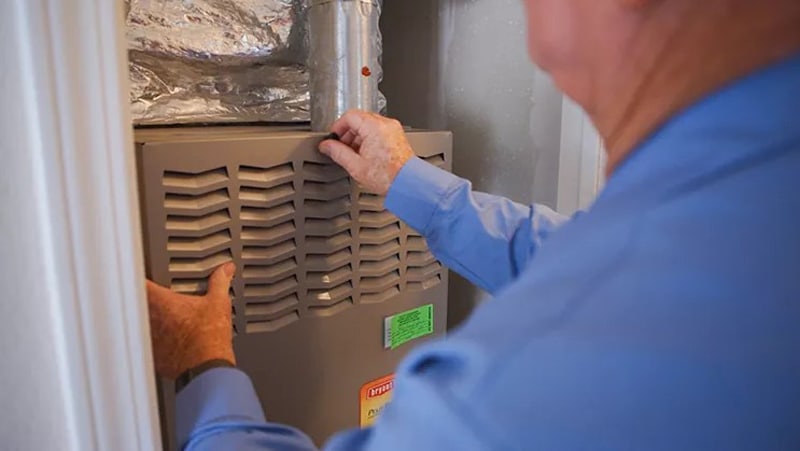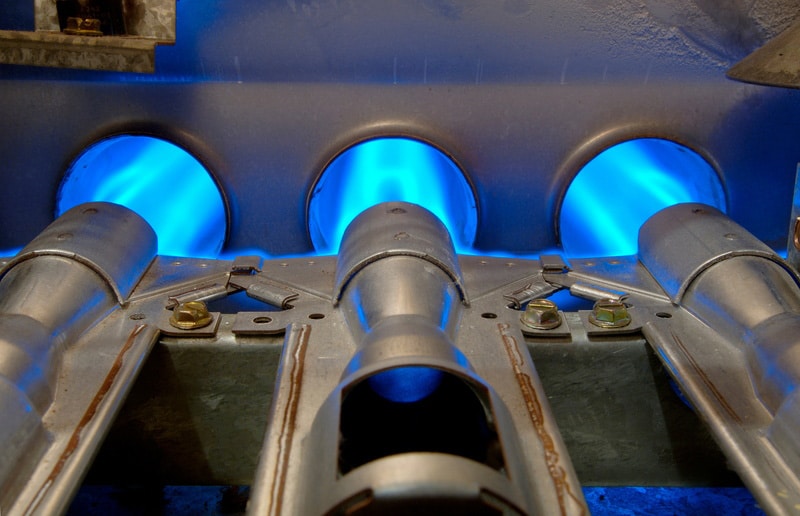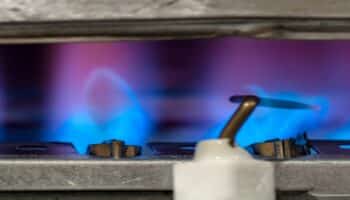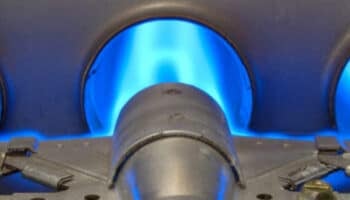We've independently reviewed this article to make sure it's as accurate as we can make it.
To find out more about our article creation and review process, check out our editorial guidelines.
Remember when you used to be able to watch TV without cranking the sound so you could hear it over your HVAC? If you sit there with the remote in your hand and your thumb on the volume button wondering why your furnace is so loud, look no further.
Your furnace could be loud for several reasons. It might be that your ductwork is too small or flexing, you have a dirty filter, a faulty or loose blower wheel, or something more serious like a crack in your heat exchanger. In some cases, these are easy, small fixes, but others are not.
Keep reading and I’ll further detail the issues mentioned above and what you need to do to fix them.
Solving A Loud Furnace
First of all, it’s important to note that in many cases the noise is not coming from the furnace itself. Your HVAC system is made up of several components, and it may be one of them that is causing the noise.
If you’re a new homeowner or you’re just not sure how a system is created and works, check out the HVAC 101 video below.
If you prefer words over video, you can read about how an HVAC system works instead.
So what’s making the noise?
1. Ductwork: Banging, Knocking, and More
If someone bangs on pots in the kitchen, there’s a good chance everyone in the house can hear it. And if something is banging on your ducts you’re going to hear that throughout the house as well.
There’s a variety of noises that your ductwork can make, including:
- Bangin
- Knocking
- Popping
- Rattling
- Screeching
- Whistling
So what’s causing the noise?
Air pressure. If air pressure builds up a can lead to rumbling, banging, or popping noises. This could be because of the metal expanding and contracting when the system starts up. And then, as airflow begins to decrease and pressure reduces, the walls of your ducts can pop back into place — and you will hear it happen.

Pressure can also build up due to closed supply vents. If multiple vents in the system are closed it may result in significant noise, not to mention a strain on your system.
Solutions. Fortunately, there are a few things to do to fix this.
Of course, you can install larger ducts capable of more air volume, but not everyone is prepared to spend that kind of money.
Other options are:
Adjust Fan Speed – lowering the fan speed may reduce static pressure.
Install high-velocity registers or grills.
2. Dirty Filters: Whistling or Screeching
Filters require airflow.
If your filters are clogged up with dirt and debris, airflow is restricted and this can lead to whistling or screeching sounds in your system. This is because air is now trying to push itself through restricted openings. Not only does this cause aggravating noise, but it can also ultimately destroy your system.
Solution. Regularly change or clean your filters. Most manufacturers recommend a three-month schedule but check to see what is recommended for your system and filter.
3. Blower Motor: Rattling or Screeching
Rattling or screeching sounds may indicate an issue with your blower motor. It could be the motor itself or perhaps the bearings.
It’s the blower motor’s job to force either warm or cool air from your furnace or air conditioner respectively through your ductwork and out your supply vents. So any noise coming from the motor or the bearings will carry throughout your home.
Solution. Lubricating the blower motor should be a part of your regular furnace maintenance, whether you’re doing it yourself or you hire a technician. Without lubrication, the fan will eventually seize up and may even burn out.
The following video has a tutorial:
Note – blower motors which need lubrication like this are now quite old. Most modern motors don’t have lubrication ports, but they should also not be as loud.
4. Dirty Burners: Banging
If your furnace lets loose with a loud bang when you turn it on it could be because of delayed ignition due to dirty burners.
The bang or boom occurs because of the gas buildup when the ignition is delayed. It could also be because of an imbalance in the air to fuel ratio. In either case, it needs to be addressed.
Solution.It is recommended that you have an HVAC professional deal with this issue.

5. Faulty Heat Exchanger: Rattling
A leak or crack in the heat exchanger will cause it to rattle. If your furnace is close to the end of its life, a cracked heat exchanger is quite possible. A cracked heat exchanger on a newer furnace could be because of restricted airflow. This causes a significant heat build-up within the heat exchanger, eventually causing it to crack.
This is dangerous and can lead to a carbon monoxide leak.
Solution. If you haven’t been able to determine that the rattling is from a loose screw or some other benign issue, turn off the furnace and call a professional HVAC technician.
Conclusion
I hope this article has helped you solve your loud furnace issues today.
However, if I’ve indicated above that an issue should be dealt with by a professional, please do call out someone who knows what they’re doing. If you’re not confident, it’s best to leave it up to a pro instead of risking making the issue worse!
If we’ve helped you out today, please consider checking out more of our articles below – or signing up to our email list!







